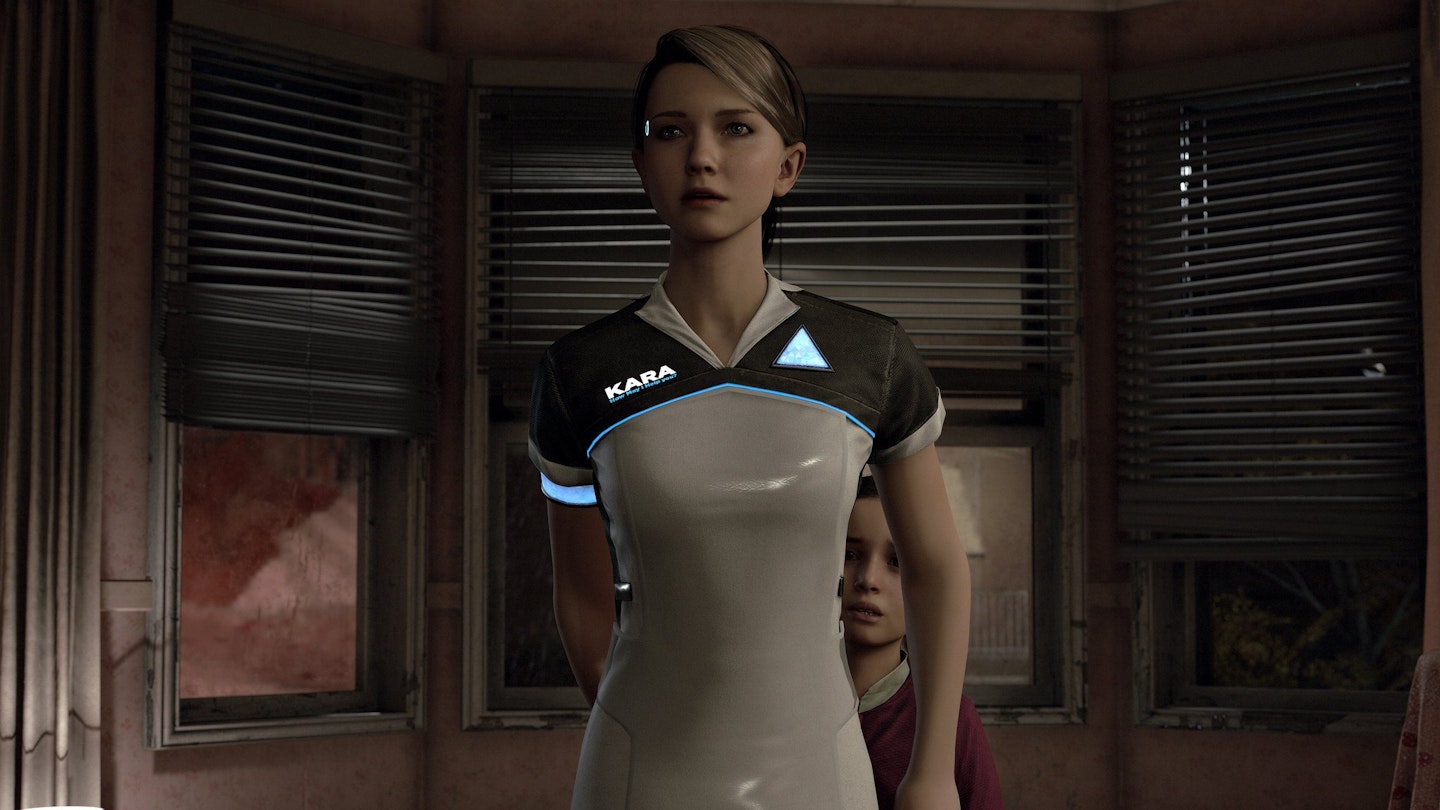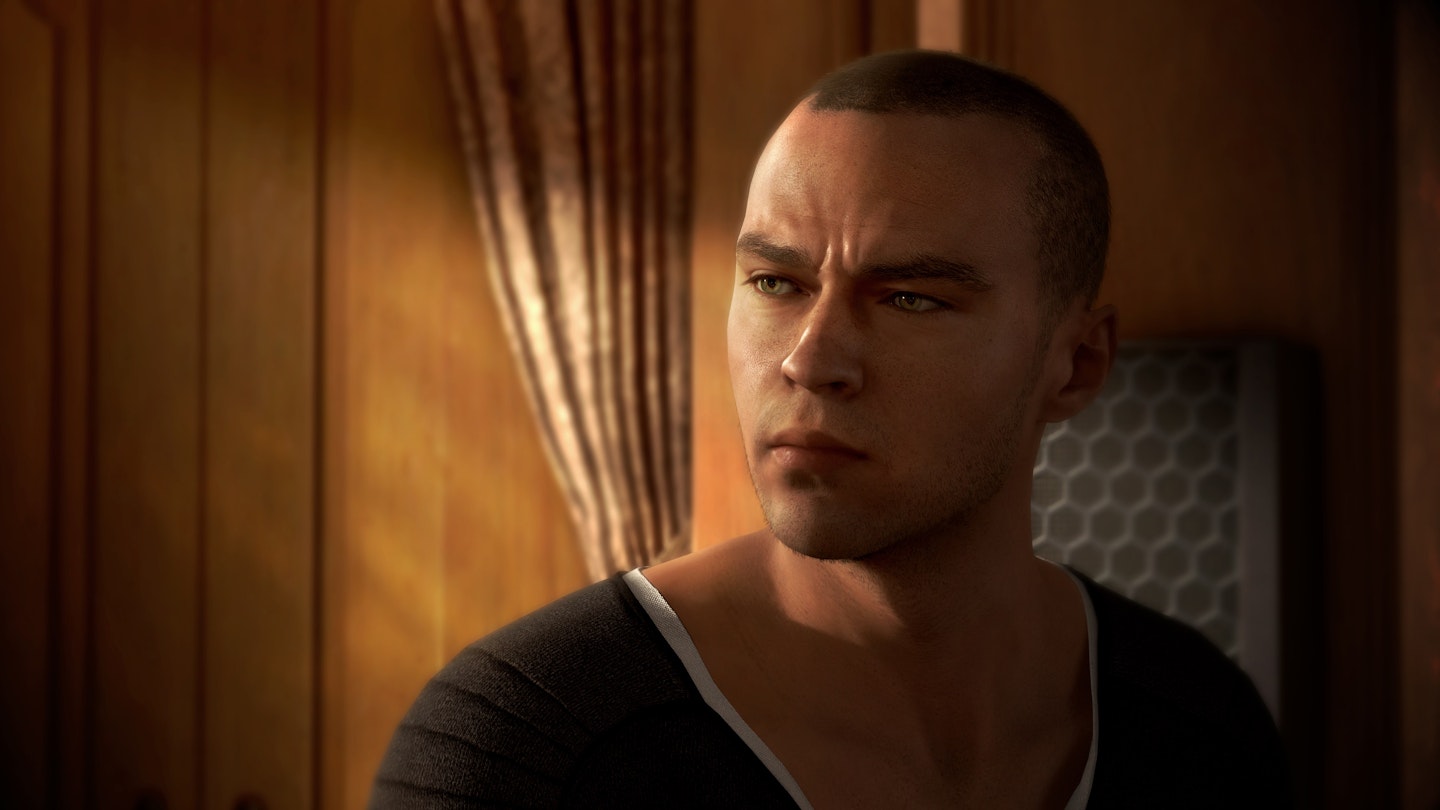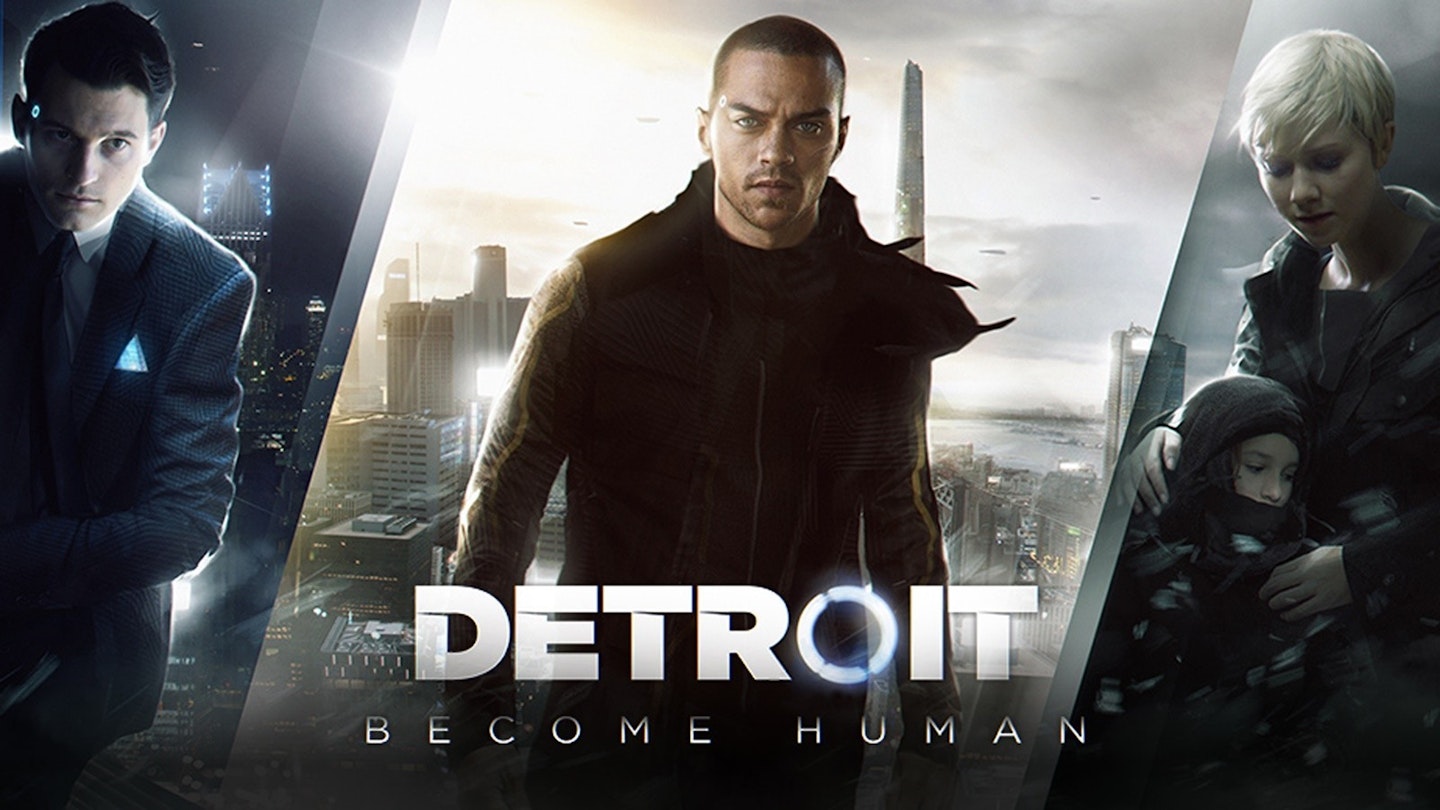It seems fitting that Detroit arrives now – with Westworld being one of the biggest shows on TV, the rise of the machines has rarely been more popular. We also sit at a turning point in the real world, where automation, artificial intelligence, and advanced robotics threaten to upheave the human social order, so exploring that shift through sci-fi feels timely.

This is the fulcrum on which writer/director David Cage posits his vision: a near-future where the former Motor City has been revitalised by the development of androids. The world faces greater changes though, as these alarmingly detailed synthetics replace human labour, fostering resentment in wide swathes of the meatbag population – and that's before some start breaking the bonds of their programming, becoming "deviant" and occasionally murdering us.
Detroit chiefly follows three android characters – Kara, a housemaid and carry-over from the startling 2012 tech demo that ultimately birthed the game; Markus, carer for an ageing artist; and Connor, a police model – shifting focus between them to build a complex and wildly branching story. It's a story ultimately pinned on the not-exactly-original exploration of what it means to be human, but that now-familiar question is given gravitas thanks to solid performances from the likes of Valerie Curry, Jesse Williams, Clancy Brown and Lance Henriksen.
Cage and his team attempt to once again blur the lines between game and film.
Anyone familiar with Cage's body of work – chiefly Heavy Rain and Beyond: Two Souls – will find similar territory being trod here, as Cage and his team attempt to once again blur the lines between game and film. That results in a highly cinematic experience with practically no on-screen HUD. Even the androids' scanning mode, used to highlight key objects or to display objectives, is neatly incorporated as an almost filmic overlay, aiding immersion in the world.
The trade-off is interactivity and, for want of a better term, gameplay. Like most of Quantic Dreams' output, you'll mainly be making your way through scenes, using items with flicks of thumbsticks, tilts of the controller, or swipes of the touchpad when prompted, all actions designed to mimic actually using objects. These prompts are occasionally joined by Quick Time Events, which remain a contentious design choice years after the term was coined by Shenmue's Yu Suzuki – fail to press a button at the right time, and the outcome of a scene can totally change. However, investigative sections as Connor, where crime scenes can be reconstructed, add a welcome uptick in engagement – a far cry from an early scene where you literally wash the dishes as Kara – while cannily navigating free-choice conversations, affecting the trust of human characters, make you feel like a real impact is being made.
The overall quality of the writing is better than much of the studio's past output, too. The game's worst sin there is some extremely trite dialogue options – Markus can at one point respond with a Martin Luther King Jr. quote, in a ham-fisted attempt at a race metaphor – but for the most part, Detroit offers realistic characters and a thoughtful contemplation on society.

Yet for all the stodginess of control and occasionally questionable line, Detroit proves Cage's most engaging game. Story paths diverge increasingly significantly as you progress, and the events of one play-through (expect 8-10 hours) can be shockingly different to the next. A handy flowchart helps identify where key choices may occur, letting you pick out new paths as you return, and chances are you'll get so absorbed in the world that you'll want to explore every possible branch.
Detroit: Become Human may effectively be a customisable drama more than a game, but it's one of the best examples of the form.
